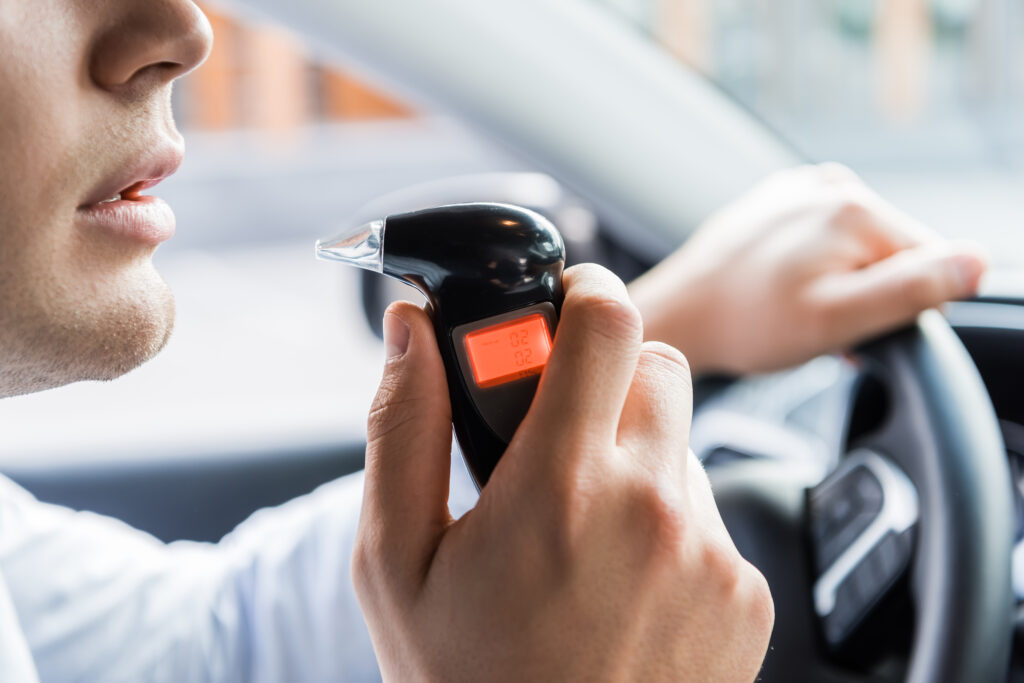In a bold move signaling a significant shift in DUI (Driving Under the Influence) enforcement, Florida lawmakers are rallying to enact legislation that could mark the refusal of a breathalyzer test as a criminal offense. This initiative aims to tighten the reins on drunk driving, which has marred countless lives and families across the state.
The Persistent Shadow of DUIs in Florida
Florida’s ongoing battle with DUI-related incidents is a persistent issue. Historically, the state has been plagued by a distressing number of accidents and fatalities directly linked to impaired driving. This problem has prompted widespread concern among public safety officials and advocates, leading to numerous campaigns and initiatives aimed at reducing the incidence of drunk driving and enhancing road safety. Despite these efforts, the challenge of curbing DUI-related accidents remains a significant obstacle, illustrating the need for continued vigilance and innovative solutions to combat this dangerous behavior.
Data sourced from the Florida Highway Safety and Motor Vehicles (FLHSMV) reveals that the state of Florida faced a significant challenge in 2022, with approximately 5,232 reported cases of alcohol-related, drunk-driving accidents. These incidents have had a profound impact on the community, resulting in more than 3,052 individuals sustaining injuries of varying severity. Moreover, these crashes have led to the tragic loss of 406 lives, underscoring the critical issue of drunk driving and its devastating effects on families and communities across the state. This alarming data highlights the urgent need for enhanced measures to combat drunk driving and improve road safety for all Floridians.
DUI Enforcement Across the United States
The National Highway Traffic Safety Administration (NHTSA) reveals that approximately 31% of all traffic-related deaths in the United States involve alcohol-impaired drivers, with blood alcohol concentrations (BACs) of .08 grams per deciliter or higher. The alarmingly high rate of DUI-related traffic fatalities underscores the pressing need for stringent enforcement of DUI laws nationwide.
Florida's Efforts To Curb Driving Under the Influence
Compared to the rest of the United States, Florida’s DUI enforcement laws rank as average. However, when it comes to DUI prevention efforts, the state stands out for being both strict and creative, employing a variety of strategies to curb drunk driving. Despite the state’s endeavors to mitigate DUI incidents, the prevalence of such incidents in Florida remains worryingly high.
This persistent problem raises a critical question: Are the current measures implemented by the state sufficient to combat the issue effectively? Acknowledging the challenge, the State Government of Florida resoundingly believes that the current measures are insufficient. A unanimous agreement exists on the urgency of improving DUI prevention tactics. This consensus has catalyzed the development of four bills currently advancing within the Florida government aimed at reducing DUI occurrences in the state.
Florida's Current DUI Laws
Under the existing legal framework, when drivers are stopped under the suspicion of driving under the influence (DUI), choosing not to comply with a breathalyzer test is not considered a criminal offense by itself. However, this refusal is met with several administrative consequences, one of the most impactful being the suspension of the driver’s license.
Data reveals that about 35% of individuals in Florida who are apprehended for DUI choose to decline the breathalyzer test. This decision to refuse testing is notably higher in Florida than in the rest of the country, with the national average standing at 24%. This stark difference is highlighted in a comprehensive analysis conducted by staff members of the Florida Senate, suggesting a unique trend within the state regarding the management of DUI incidents.
The Shift in Legislation
The proposed bills, notably Senate Bills 232 & 260 and House Bills 39 & 871 suggest categorizing the refusal of breathalyzer tests as a Class 2 misdemeanor. This classification not only echoes the gravity of DUI offenses but also aligns with the heightened efforts to deter individuals from driving under the influence.
What Is a Class 2 Misdemeanor in Florida?
Class B or Class 2 misdemeanors occupy the middle ground in the severity scale of legal offenses, positioned as less severe than Class A misdemeanors but carrying more weight than Class C misdemeanors. When it comes to punishment for Class B misdemeanors, the consequences can be quite impactful, with penalties potentially including up to 60 days in jail, providing a significant deterrent to committing such offenses. On top of incarceration, individuals found guilty of Class B misdemeanors may also face fines reaching up to $1000, adding a financial burden to the legal repercussions.
Other offenses that fall under the classification of class 2 misdemeanors include activities such as engaging in prostitution, possessing illegal drugs, and committing acts of harassment. By proposing to include the refusal to submit to a breathalyzer test within this same category, lawmakers are clearly signaling their intent to treat such refusals with a heightened level of seriousness. This action underlines the increasing efforts to combat drunk driving and emphasizes the gravity of making the decision to refuse a breathalyzer test under the new legislative proposal.
Use of Interlock Ignition Devices in Florida
Interlock ignition devices (IIDs) have been one of Florida’s answers to repeat DUI offenses. They require drivers convicted of DUI to pass a breathalyzer test connected to their vehicle’s ignition system. The effectiveness of IIDs has been both lauded for preventing repeat offenses and criticized for its limitations and stigmatization of users.
Role of Interlock Ignition Devices If Mandatory Breathalyzer Laws Are Passed
According to the proposed legislation, individuals who refuse to undergo a breathalyzer test would be mandated to install ignition interlock devices in their vehicles at their own expense. The cost of these devices ranges from approximately $600 to over $1,000, serving as a substantial financial disincentive to declining the test.
In support of the bills, Kristen Allen, the Executive Director for Mothers Against Drunk Driving in Tallahassee, Florida, highlighted that between 2006 and 2022, ignition interlock devices have prevented over 131,000 attempts to drive with a blood-alcohol level of .08 or higher. Remarkably, nearly 12,000 of these interventions occurred in 2022 alone.
Is It OK To Use Interlock Ignition Devices Before a DUI Conviction?
Critics of the proposed legislation contend that the requirement for the installation of Ignition Interlock Devices on vehicles belonging to individuals accused but not yet convicted of drunk driving infringes upon their rights. They argue that this preemptive measure effectively administers punishment for drunk driving before the legal system has made any formal determination of guilt, thereby bypassing the presumption of innocence until proven guilty. This approach, they assert, undermines the foundational principles of justice by imposing penalties without a legitimate legal process to establish wrongdoing.
The Mandatory Breathalyzer Legislative Landscape in Florida
Senate Bill (SB) 232 was recently presented to the Florida Senate’s Committee on Criminal Justice and passed unanimously within that governing body. Before making its way to the Senate floor for a vote, the bill will have to clear review by two additional committees. However, little opposition is anticipated. A companion bill, House Bill (HB) 871, has yet to be presented to the House for review.
In addition to SB 232, the state government is also pushing forward SB 260 and its companion bill HB 39. SB 260 successfully passed in the Senate Fiscal Policy Committee with a decisive 19-1 vote on February 7, marking its third and final committee review before proceeding to the Senate floor. It has a parallel bill in the House, HB 39, which has already progressed through two of its three designated committees. Enacting any of these bills would signify a substantial shift in policy regarding the timing and circumstances under which drivers can be criminally penalized for driving under the influence.
The Legal and Ethical Quandaries of Mandatory Breathalyzer Tests
While the majority of legislators support the new bills, they are not without controversy. Geraldine Thompson stood out as the only senator to debate SB 260 and was also the sole lawmaker to vote against the measure at the committee stage.
Innocent Until Proven Guilty
Representing Windemere, Senator Thompson clarified her objection to the bill, stating it wasn’t its intention to lower DUI rates that she disputed. Instead, her concern lies in the assumption that all behaviors suggesting impaired driving are illegal. She argued that the bill prematurely imposes penalties without establishing guilt, highlighting the need for a more nuanced approach to addressing DUI incidents.
Impacts to Due Process
The Florida Association of Criminal Defense Lawyers has expressed concerns that the new measure may bypass due process. Aaron Wayt, the legislative chair of the association, voiced these apprehensions during the Senate Fiscal Policy Committee meeting, indicating a strong disapproval of the bill.
Wayt discussed the current and proposed laws regarding ignition interlock devices, noting they’re required for repeat offenders or those with high alcohol levels upon conviction. A new bill seeks to impose these devices immediately after arrest for first-time offenders refusing a breath test, a move he views as a peculiar approach to public safety, offering less judicial process compared to repeat offenders.
Reach Out If You Have Any Questions
If you have any legal questions whatsoever, please know that our team of attorneys are always here to provide you with answers. We’re committed to guiding you through the challenging and shifting legal landscape in Florida as best we can. Don’t hesitate to reach out here.













